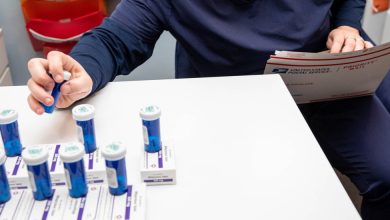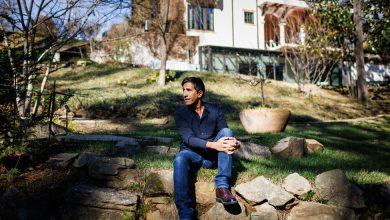Jury Must Weigh Complex Legal Questions Before Kyle Rittenhouse Verdict

KENOSHA, Wis. — The trial of Kyle Rittenhouse, which has played out over the last two weeks, has seemed at times to come down to a matter of deciding whether Mr. Rittenhouse was acting in self-defense when he shot three men amid demonstrations in Kenosha, Wis., or whether he was committing serious crimes, including first-degree intentional homicide.
But the 12 jurors who are expected to begin deliberating the case next week are actually tasked with a far more complex set of decisions: They must weigh six individual criminal counts that Mr. Rittenhouse has been charged with, each reflecting prosecutors’ claims about different portions of his behavior that night in August 2020. And beyond those six counts, the jurors may also be asked to weigh an array of less serious charges, the judge signaled on Friday, after a debate over jury instructions between prosecutors and the defense.
Closing arguments are expected on Monday morning in the trial of Mr. Rittenhouse, who was 17 when he came to Kenosha with a semiautomatic rifle amid unrest over a police shooting and fired eight shots, killing two men and wounding a third. The charges include first-degree intentional homicide, which is called first-degree murder in other states and is among the most serious charges on the books in Wisconsin. If convicted of that charge, he could face life in prison.
Judge Bruce Schroeder indicated on Friday that he would let the jury consider offenses less serious than the ones Mr. Rittenhouse stands charged with but did not formally announce what those charges might be.
“The lesser charge implicitly invites a compromise among the jurors,” said Michael O’Hear, a professor at Marquette University Law School in Milwaukee, who said requests for juries to consider charges less serious than the ones a defendant originally faced were common.
James Kraus, a prosecutor in Mr. Rittenhouse’s trial, told reporters that his request to allow jurors to consider lighter charges on several counts was standard rather than an admission of weakness in the case.
Closing statements could last up to five hours on Monday, after which the jury is expected to hear instructions from the judge and begin deliberating.
In Wisconsin, officials aware of widespread attention on the case appeared to be bracing for a verdict. Gov. Tony Evers announced that he had authorized about 500 members of the National Guard to be ready outside Kenosha in case they were needed by the local authorities.
Some essential facts are not in dispute after nearly two weeks of video evidence and testimony in the case. Near midnight on Aug. 25, 2020, Mr. Rittenhouse fatally shot Joseph Rosenbaum, 36, during civil unrest in the city. He then shot two other men who had pursued him, killing Anthony Huber, 26, and wounding Gaige Grosskreutz, then 26.
The question of whether Mr. Rittenhouse’s actions were crimes or legal acts may hinge on jurors’ understanding of self-defense law. Wisconsin law generally allows a person to shoot in self-defense if he or she reasonably believes it is necessary to avoid being killed or badly hurt. Jurors will get instructions on how to parse that law, including how to consider whether Mr. Rittenhouse acted reasonably, but legal observers said the issue sometimes comes down to jurors’ personal views.
The jurors will be asked to vet the series of events that took place that night — with each charge attached to a separate episode.
Mr. Rittenhouse is charged with first-degree reckless homicide for the killing of Mr. Rosenbaum. The most serious charge he faces, first-degree intentional homicide, is connected to the fatal shooting of Mr. Huber. And Mr. Rittenhouse is charged with attempted first-degree intentional homicide for shooting Mr. Grosskreutz.
Mr. Rittenhouse also faces two counts of first-degree recklessly endangering safety: One for shooting at but missing an unidentified man who was captured on video kicking Mr. Rittenhouse, and the other related to a videographer who thought at first that he had been shot, but was not. Finally, Mr. Rittenhouse, who is now 18, faces a misdemeanor charge of illegally possessing the gun.
After the lawyers debated what instructions should be presented to jurors, Judge Schroeder did not make his decisions official, but indicated that he would let jurors consider charges less serious than various original counts. On the first-degree intentional homicide count, the judge said he was likely to let jurors consider second-degree intentional homicide and first-degree reckless homicide — both less serious charges.
Legal experts said a second-degree intentional homicide charge, for instance, would allow jurors to consider whether they found Mr. Rittenhouse’s assertion that he was in danger to be sincere but not reasonable.
As the discussion between the lawyers of possible instructions to jurors ended on Friday, Judge Schroeder explained the details of the law to Mr. Rittenhouse himself.
Adding lesser offenses as an option was “raising the risk of conviction,” the judge told Mr. Rittenhouse, adding that the option might also lower the risk of conviction on a more serious charge. The judge asked Mr. Rittenhouse several questions, including whether he was satisfied with his lawyers’ decision not to object to letting the jury mull some less serious charges in his case.
“Do you think what you’re doing is the best thing under all circumstances,” Judge Schroeder asked.
“Yes,” Mr. Rittenhouse answered.





